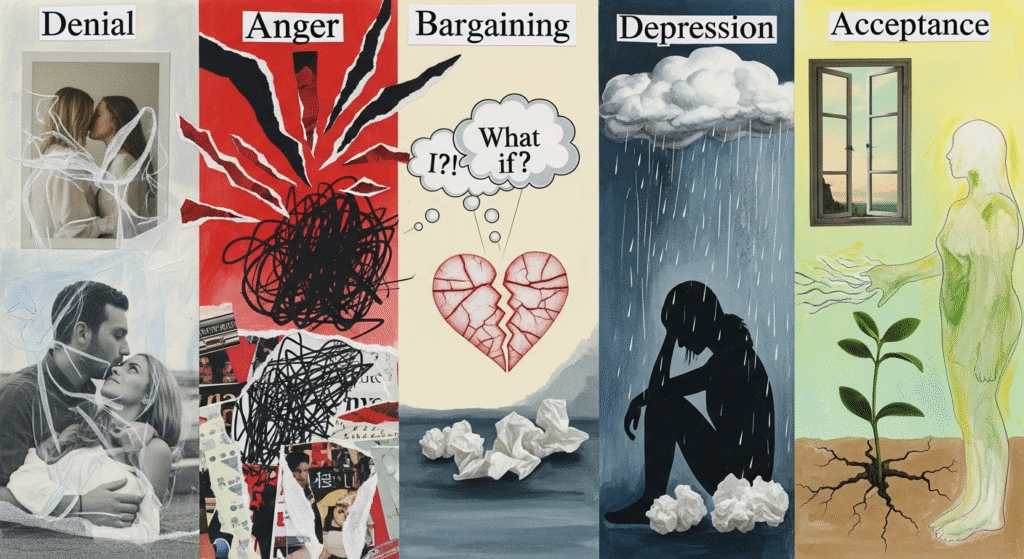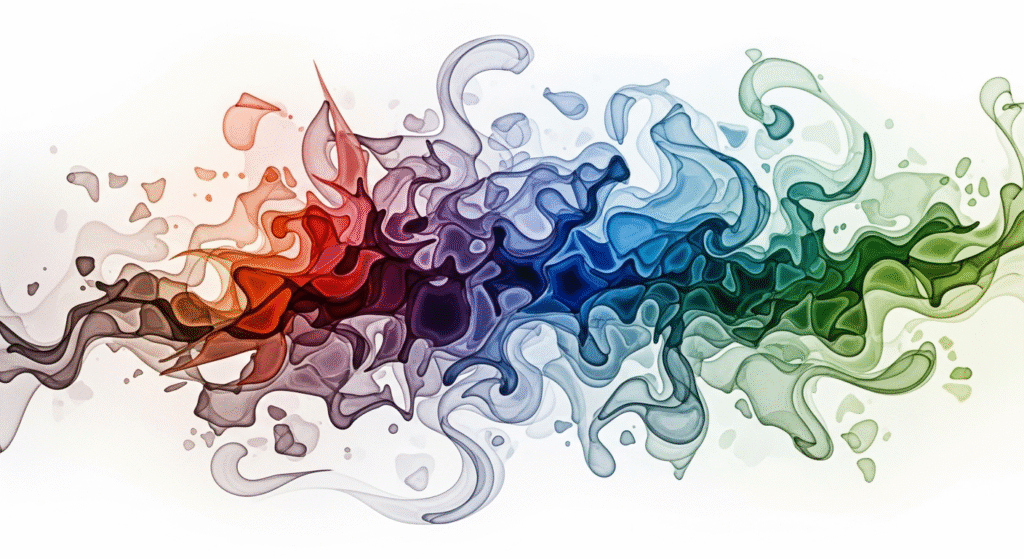Breakup Grief: When a Broken Heart Feels Like a Shattered World
Breakup grief: Introduction
The landscape of breakup grief is often vast and disorienting, a terrain many navigate with a profound sense of isolation. When a relationship ends, especially one that deeply shaped your world, it’s far more than just saying goodbye to a person. It’s a seismic shift, an unraveling of the future you envisioned, and a painful re-evaluation of your own identity. You might find yourself grappling with an emptiness that feels remarkably similar to the loss of a loved one, questioning why the ache in your chest feels so physical, so utterly consuming. This isn’t an exaggeration; your feelings are valid, and your pain is real. Often, friends and family might not fully grasp the magnitude of what you’re experiencing, perhaps saying things like, “You’ll find someone else,” or “Just move on.” While well-intentioned, these words can inadvertently minimize the very real grief you’re processing. It’s essential to acknowledge that the depth of your loss is significant, and it deserves space, understanding, and compassionate attention. Together, we’ll explore why this unique form of sorrow impacts us so deeply and how you can gently begin to pick up the pieces, honoring your journey every step of the way.

Breakup grief: Acknowledging the Depth of Your Loss: Why Breakup Grief Feels Like a Death
When a relationship ends, it often feels as though a part of you has died, and in many ways, it has. We often underestimate the profound impact a breakup has on our entire being – emotionally, mentally, and even physically. This isn’t just about losing a partner; it’s about the dismantling of a shared life, a collective dream, and a version of your future that was once vividly painted. The intensity of this emotional pain after breakup can be startling, leaving you feeling adrift and fundamentally altered. It’s crucial to acknowledge the multi-faceted nature of this loss, to understand that what you’re experiencing is a legitimate form of grief, deserving of your full attention and compassion. Denying or minimizing this pain only prolongs the healing process. Let’s explore the various dimensions of this profound loss.
Key Points
– You didn’t just lose a person; you lost the future you meticulously planned, the inside jokes, the routine comfort, and perhaps even a sense of who you were within that partnership. The identity you built as part of a couple is now fractured, leaving you to rediscover who you are as an individual. It’s important to allow yourself to grieve these vanished dreams and the life that will no longer unfold as you once imagined.
– The saying ‘a broken heart’ isn’t just a metaphor. Stress hormones flood your system, leading to physical symptoms like fatigue, disrupted sleep, changes in appetite, muscle aches, and even a sensation of actual chest pain. This is your body’s physiological response to profound emotional distress, a clear indication that your grief isn’t just ‘all in your head.’ Honouring these physical manifestations is part of validating your experience.
– In a society that sometimes rushes us to ‘get over it,’ it’s vital to affirm that your breakup grief is profoundly real. It’s a natural, human response to a significant loss. Whether the relationship lasted months or decades, the emotional investment was significant. Give yourself permission to feel every wave of sadness, anger, confusion, and despair without judgment. This is an essential step toward authentic healing.
Practical Insights
– Journaling can be a powerful tool to articulate the specific dreams, shared memories, and aspects of your identity you feel you’ve lost. Writing helps externalize the pain and brings clarity.
– Pay attention to your body’s signals. If you’re experiencing physical symptoms, consult a doctor to rule out other issues, and then focus on gentle self-care: adequate sleep, nourishing food, and light movement.
– Surround yourself with people who validate your feelings, rather than dismiss them. A supportive friend or therapist can provide a safe space to express your grief fully.

Breakup grief: Navigating the Winding Path of Breakup Grief
Just like any significant loss, navigating breakup grief is rarely a straight line. It’s more akin to a winding, sometimes treacherous, path with unexpected turns and sudden drops. You might find yourself experiencing a whirlwind of emotions – one moment feeling okay, the next overwhelmed by sadness, anger, or confusion. This fluctuating emotional landscape can be disorienting, making you wonder if you’re truly making progress. But rest assured, this is a completely normal part of the healing process. Understanding the nature of this journey can help you be more compassionate with yourself as you move through it, recognizing that every emotion, every setback, holds a potential lesson.
Key Points
– You might recognize stages often associated with death – denial, anger, bargaining, depression, and acceptance – as you navigate your breakup. You might deny the finality, rage at the injustice, bargain for another chance, feel deep sadness, and eventually, slowly, begin to accept the new reality. It’s a cyclical process, not a checklist, and you might revisit stages multiple times. Understanding these common patterns can normalize your experience.
– Unlike a neat linear progression, healing from a breakup is often messy and unpredictable. One day you’re soaring, feeling empowered and ready for the future, and the next, a song or a memory sends you spiraling back into intense sadness. This isn’t a failure; it’s simply how emotional processing works. Allow yourself this fluidity, trusting that even in the dips, you are still moving forward, even if imperceptibly.
– While the pain of a breakup can feel overwhelming, it also offers a unique opportunity for profound self-reflection. What did this relationship teach you about yourself? What were your needs, your boundaries, your contributions, and your blind spots? What patterns emerged, both positive and challenging? This isn’t about blaming, but about learning and growing. Engaging in this honest self-inquiry can transform your heartache into wisdom, setting a stronger foundation for future connections. Explore how you can turn your heartache into healing by diving deep into these questions.
Practical Insights
– Instead of fighting the waves of emotion, try to observe them without judgment. Acknowledge what you’re feeling, allow it to pass, and remind yourself that all feelings are temporary.
– Consider therapy or a support group. Sharing your experiences with others who understand can reduce feelings of isolation and provide valuable coping strategies.
– After the initial shock, take time to reflect on the relationship dynamics. What were the healthy aspects? What were the red flags? What would you do differently next time? This honest assessment is crucial for future growth.

Breakup grief: Gently Rebuilding: From Heartbreak to Hope
While the journey through breakup grief is undeniably challenging, it also carries the profound potential for renewal and growth. As you slowly begin to emerge from the intensity of your loss, the focus shifts from just surviving to gently, yet intentionally, rebuilding your life. This isn’t about rushing into something new or pretending the pain never existed; it’s about honoring your past while consciously creating a fulfilling future. This phase is about rediscovering your inner strength, redefining what truly brings you joy, and establishing healthy foundations for your emotional well-being. It’s an empowering process where you reclaim your narrative and step into a new, more authentic version of yourself.
Key Points
– Now, more than ever, you deserve profound kindness. Radical self-care isn’t a luxury; it’s a necessity. This means prioritizing your physical health with nourishing foods and adequate sleep, engaging in activities that genuinely soothe your soul, and practicing self-compassion like you would a dear friend. Be patient with yourself. Healing isn’t a race, and some days will feel harder than others. Treat yourself with the same gentle understanding you’d offer to someone you deeply care about.
– A breakup can make you question your worth, but it’s also an opportunity to remember who you are, independent of a partner. What are your passions? What unique qualities do you possess? Embrace solitude not as loneliness, but as a chance to reconnect with your authentic self, to remember your resilience, and to cultivate new interests. This is your chance to write a new story for yourself, one where you are the empowered protagonist. A good breakup survival kit often includes tools for this very self-discovery.
– As you move forward, clarity emerges about what you truly need and deserve in relationships. This is the perfect time to establish clear boundaries, both with your ex and in your future interactions. What are your non-negotiables? What healthy relationship patterns do you want to cultivate? Start small, focusing on one achievable goal at a time – perhaps committing to a new hobby, reconnecting with old friends, or simply planning a future adventure. Creating a vision for your new beginning, however tentative, can be incredibly motivating. Consider reading more on How to Set Healthy Boundaries.
Practical Insights
– Create a ‘Joy List’ – activities, big or small, that genuinely make you happy. Schedule at least one thing from this list each day, even if it’s just 15 minutes of reading or listening to music.
– Practice positive affirmations daily to rebuild self-worth. Remind yourself of your strengths, your resilience, and your inherent value, especially on days when self-doubt creeps in.
– Reflect on the type of relationship you desire moving forward. What are your core values? What kind of partner truly aligns with your authentic self? This clarity will guide your choices.
Conclusion
The journey through breakup grief is undoubtedly one of the most challenging experiences life can throw our way, a painful testament to the depth of our capacity to love and connect. We’ve explored why this profound loss often mirrors the sorrow of a death, encompassing the shattering of future dreams, a re-evaluation of identity, and even palpable physical pain. We’ve acknowledged that this grief is not a linear process, but a winding path filled with unexpected turns and invaluable opportunities for self-reflection and growth. Remember, your pain is real, your feelings are valid, and you are not alone in this experience. Healing isn’t about erasing the past or forgetting the person; it’s about integrating the experience, learning its lessons, and emerging stronger and more self-aware. As you gently rebuild, prioritize radical self-care, reclaim your unique narrative, and courageously set new boundaries. What aspects of your inner world are calling for your attention right now? How can you offer yourself more compassion today? Allow yourself the grace to heal at your own pace, trusting that with each small step forward, you are moving closer to a future filled with renewed hope, deeper self-understanding, and the potential for healthier, more fulfilling connections. This isn’t just an ending; it’s the powerful beginning of your next, most authentic chapter.